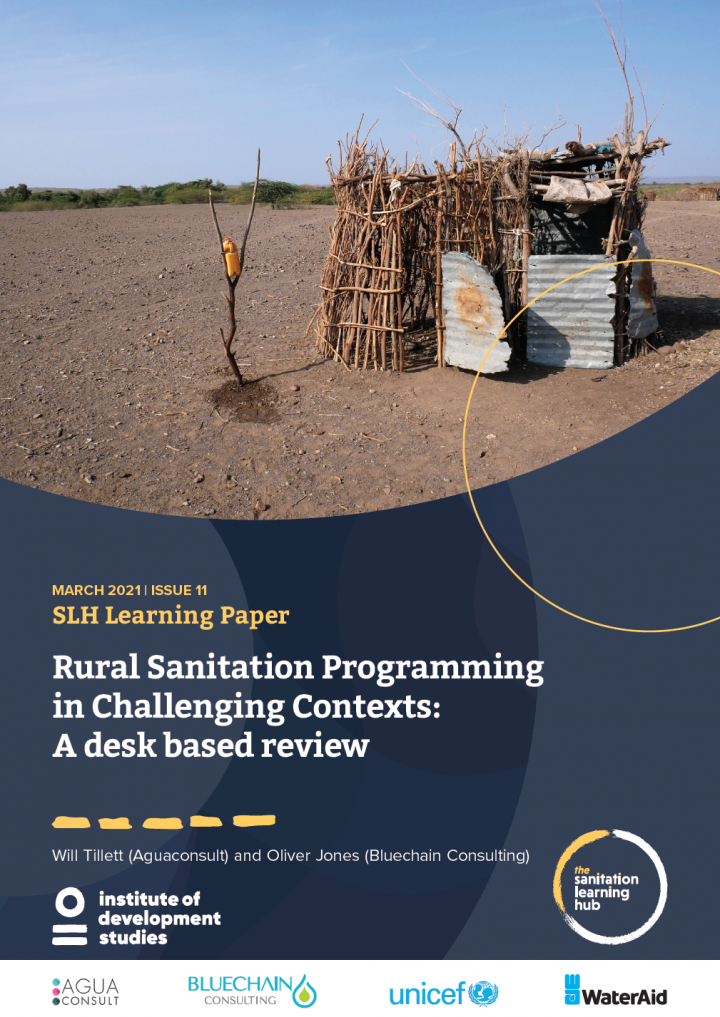Rural Sanitation Programming in Challenging Contexts: A desk based review
Tillett, W., Jones, O., (2021)

Published in: 2021
Pages: 84
Publisher:
Institute of Development Studies
Author:
Tillett, W., Jones, O.,
Uploaded by:
SuSanA Admin
Partner profile:
Deutsche Gesellschaft für Internationale Zusammenarbeit (GIZ) GmbH
1380 Views
16 Downloads
Of the two billion people worldwide lacking access to at least basic sanitation, seven out of ten live in rural areas (JMP 2019). Progress has been made on increasing rural sanitation and access levels are rising, but challenges remain in reaching the ‘last mile’ or some 10 to 20 per cent of the population (Apanga et al. 2020; UNICEF 2015).
The factors affecting the ability of households to construct and use toilets, as well as the challenges sanitation programmes face in reaching specific groups, are highly diverse. Applying one-size fits all approaches has been proven not to work; therefore, we need more nuanced, adapted, and targeted approaches to capture the universality element of the Sustainable Development Goals (SDGs) and ensure that no one is left behind (Cavill et al. 2016). However, we recognise that challenges can be persistent and there are limited documented examples of how to overcome these challenges at scale.
This rapid desk review collated preliminary findings across five broad ‘categories’ of challenges: (i) poverty and social marginalisation, (ii) entrenched social norms and beliefs, (iii) tough physical environments, (iv) lifestyles and livelihoods and (v) fragile contexts.1 It involved key informant interviews (KIIs) with 44 interviewees, and consulting over 180 documented resources.
Bibliographic information
Tillett, W., Jones, O., (2021). Rural Sanitation Programming in Challenging Contexts: A desk based review. Institute of Development Studies
Filter tags
English















